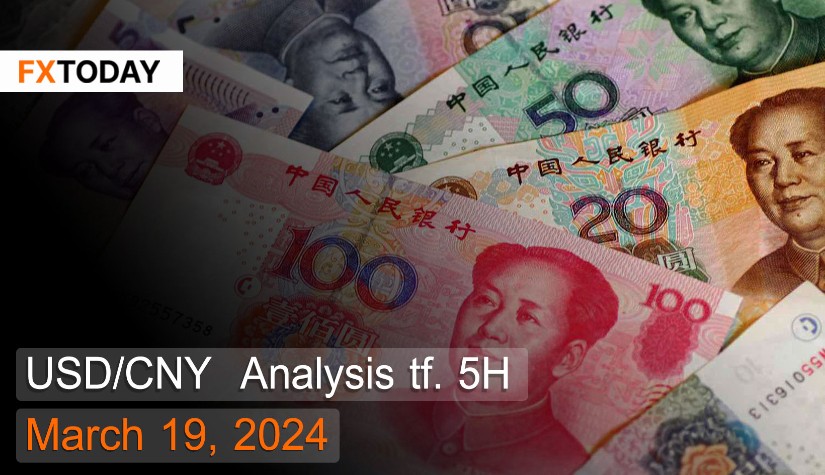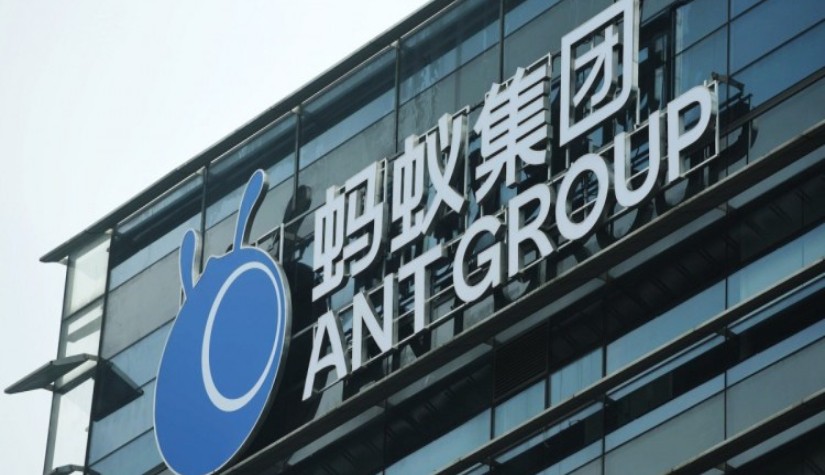The Chinese economy could further expand if it had good support.
The yuan has depreciated by over 7.19 yuan per US dollar, despite various economic indicators in China showing signs of improvement such as industrial production, trade balance, and increased new credit. However, investors remain concerned that the Fed may keep interest rates high due to US inflationary pressures, which have strengthened the dollar rapidly and increased US government bond yields.
China's trade surplus widened by $125.16 billion in January and February, higher than market expectations of $103.7 billion, due to increased exports surpassing imports even during China's important holiday period.
Imports into China rose by 3.5% annually to $402.85 billion, higher than the market's 1.5% expectation, driven by strong domestic demand during the year-end and recent Chinese New Year holidays. Crude oil and natural gas imports increased by over 14.3%, while imports of copper also rose. Imports from South Korea increased by 8.8%, while imports from the United States decreased by 9.7% due to trade tensions.
China's exports increased by 7.1% annually to $528.01 billion, after a 2.3% increase in December, signaling a recovery in global trade. Exports of household appliances and plastic products continued to rise, while exports of rare metals and iron decreased by over 25.4%. Exports expanded mainly to Russia, India, and Canada.
China's industrial production expanded by 7.0% annually in January and February, the fastest growth in nearly two years, driven by strong manufacturing activity, which increased by 7.7%. Continuous growth was observed in mining, especially in computer and communication components production, following a significant increase in chip imports.
Chinese banks extended ¥1.45 trillion in new loans in February, down from a record ¥4.92 trillion in January. While the central bank attempts to support economic recovery and ease monetary pressure by reducing the reserve requirement ratio (RRR) by 50 basis points, the positive impact remains unclear.
Techical analysis data (5H)
Resistance: 7.1996, 7.2001, 7.2006
Source: Investing.com
Buy/Long 1: If the price touches support in the price range of 7.1981 - 7.1986 but cannot break the support at 7.1986, you may set a TP at approximately 7.2001 and SL at around 7.1977 or according to your acceptable risk.
Buy/Long 2: If the price breaks the resistance in the price range of 7.1996 - 7.2001, you may set a TP at approximately 7.2006 and SL at around 7.1981 or according to your acceptable risk.
Sell/Short 1: If the price touches resistance in the price range of 7.1996 - 7.2001 but cannot break the resistance at 7.1996, you may set a TP at approximately 7.1981 and SL at around 7.2006 or according to your acceptable risk.
Sell/Short 2: If the price breaks the support in the price range of 7.1981 - 7.1986, you may set a TP at approximately 7.1977 and SL at around 7.2001 or according to your acceptable risk.
Pivot point March 19, 2024 07:57 PM. GMT+7
|
Name
|
S3
|
S2
|
S1
|
Pivot Points
|
R1
|
R2
|
R3
|
| Classic | 7.1977 | 7.1981 | 7.1986 | 7.1991 | 7.1996 | 7.2001 | 7.2006 |
| Fibonacci | 7.1981 | 7.1985 | 7.1987 | 7.1991 | 7.1995 | 7.1997 | 7.2001 |
| Camarilla | 7.1989 | 7.199 | 7.1991 | 7.1991 | 7.1993 | 7.1994 | 7.1995 |
| Woodie's | 7.1977 | 7.1981 | 7.1986 | 7.1991 | 7.1996 | 7.2001 | 7.2006 |
| DeMark's | - | - | 7.1989 | 7.1992 | 7.1999 | - | - |
















